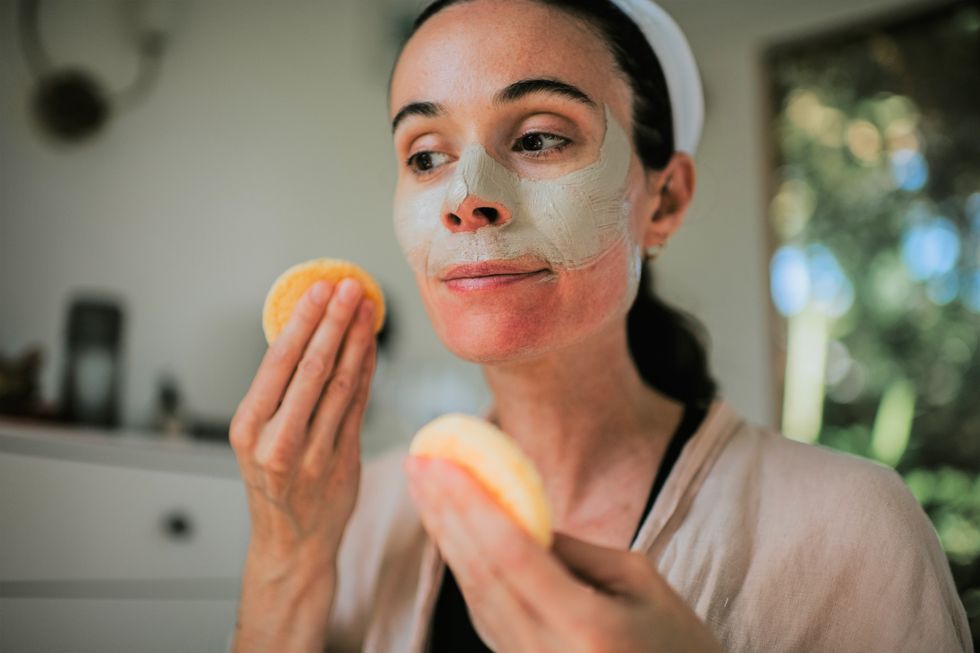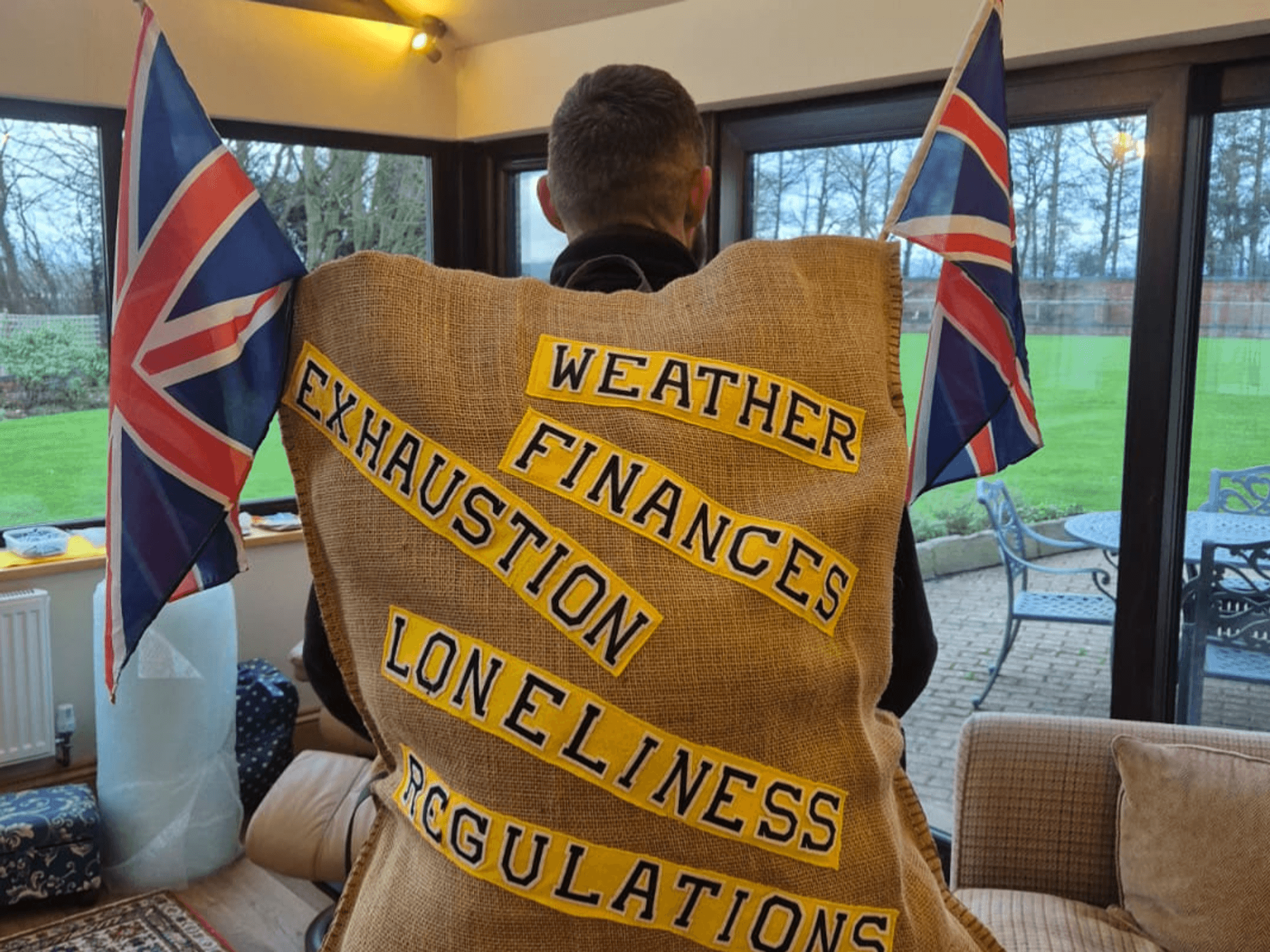'Particularly problematic!' Eight things you're doing in the shower that ruin your skin and hair

Your favourite bathroom staples are breeding grounds for bacteria, a dermatologist has warned
Don't Miss
Most Read
Latest
Showering is a daily ritual that you probably believe you've mastered by now, but according to experts, many of us have developed unhealthy cleansing habits.
Shower expert Emily Robertson and dermatologist Dr Naheed Ali from Vera Clinic have revealed the eight most common mistakes people make in the bathroom, plus how to keep things healthy and hygienic.
Washing your hair daily
Many people believe that washing your hair every day is the key to luscious locks, but the experts say they couldn't be more wrong.
Mira Showers' Emily Robertson warned that "overwashing can actually make things worse".
"Shampoo strips the scalp of natural oils, and in response, the scalp produces more oil, creating a greasy cycle that’s hard to break," she explained.
Of course, how often you shampoo and condition will depend on your personal preferences and specific daily routine, but for most of us, a couple of times a week is enough – just fall in love with dry shampoo between washes.
"You could also try opting for a gentle, sulphate-free shampoo that won't strip the hair of natural oils,” the expert concluded.
Dermatologist Dr Ali said: "Overwashing or using shampoos that are too strong can irritate follicles and contribute to hair thinning. A tailored approach, with mild cleansing and mindful care, supports not just healthy skin but stronger, healthier hair."
Using an old loofah
Encouraging Britons to replace their shower staples in a timely fashion, Dr Ali warned that old loofahs can be "particularly problematic".
This is because their porous texture traps dead skin cells, soap residue, and moisture, creating a "perfect environment for bacterial growth".
He pointed to research in the National Library of Medicine that shows loofahs can harbour potentially harmful bacteria, including Pseudomonas species, which may contribute to skin infections.
"Frequent use of a contaminated loofah can irritate or cause small breaks in the skin, creating a place of entry for infections, especially in vulnerable individuals," he cautioned.
In light of this, if you want to use a loofah, replace it regularly. Alternatively, use softer cloth alternatives that can be properly washed and dried.
Reusing dirty towels
A recent study by Mira Showers revealed that a fifth of people only wash their towels once a month, meaning they're most likely crawling with bacteria.
Ms Robertson advised Britons to wash their towels every three uses, before hanging them out to dry fully in between. They should never be left bunched on the floor or on a radiator.
Dr Ali stressed the importance of regular washing, "because once a towel becomes damp, it quickly turns into a breeding ground for bacteria and fungi".
The dermatologist told skin care enthusiasts: "Putting that same towel back onto the skin – especially if it's already dry or irritated – significantly increases the risk of breakouts or infection."
As for sharing towels, this risk multiplies, as skin conditions can be spread between people.
LATEST DEVELOPMENTS:

Overwashing your hair 'can actually make things worse'
| GETTY IMAGESBlasting hot water
While few things feel better than stepping into a steaming hot shower, water that's too hot can damage your skin, the shower expert warned.
"Instead, opt for lukewarm water and keep showers under 10 -15 minutes. If you love the heat, finish with a blast of cool water to help close pores and refresh circulation," she suggested.
Dr Ali added that taking very hot showers frequently can strip away natural oils that protect the skin, leading to a "dry, itchy complexion that's more prone to flare-ups of conditions such as eczema".
Wearing contact lenses
Contacts are so cosy it's often easy to forget we're wearing them, but neglecting to take them out before a rinse can spell disaster for your eyes.
Ms Robertson shared that it can be "very risky", explaining that tap water isn't completely clean – it can contain tiny germs like Acanthamoeba.
She said: "If these get trapped under your lenses, they can cause painful infections that are difficult to treat and, in rare cases, can even damage your eyesight. The safest option is to take your lenses out before you shower."

'Too much exfoliation can actually strip away the skin's natural oils and weaken its protective barrier'
| GETTYUsing a damp/blunt razor
Advising Britons to relocate their razors, the shower specialist explained that the "constant dampness" from the shower creates the "perfect environment for bacteria to grow".
A wet blade is also more likely to rust and become blunt, which can cause nicks, razor burn, and painful ingrown hairs – ouch!
Shaving with a blunt razor can also create tiny cuts that make it easier for germs to enter the skin.
For seamless shaving, razors should be rinsed well after use, stored somewhere dry, and the blades replaced regularly.
Over-exfoliating
Dr Ali stated: "Over-exfoliating is another pretty common mistake. While we all want smooth, glowing skin, too much exfoliation can actually strip away the skin's natural oils and weaken its protective barrier.
"This often leads to redness, stinging, dryness, and flare-ups of things like acne or eczema. It can also make your skin more sensitive and vulnerable to everyday irritants and environmental factors."
Gentle exfoliating can leave you with enviably smooth skin, so skin care enthusiasts are advised to avoid scrubbing too hard and follow up with moisturiser.
The shower expert added: "In some cases, over-exfoliating can even make breakouts worse. Most people only need to exfoliate once or twice a week, and it’s best to use a gentle method that suits your skin type."
Using soap where you shouldn't
While you definitely want a generous lather, some areas are best left suds-free, the shower specialist warned.
Ms Robertson stated: "Soap is a bathroom staple, but it's not suitable for every part of your body. Traditional soaps can be drying and may upset the natural balance of more sensitive areas, which can lead to irritation and discomfort."
For "healthy and hydrated", unproblematic skin, she suggested a mild, pH-balanced cleanser for intimate areas, and gentle body washes or creams for the rest of your skin.











